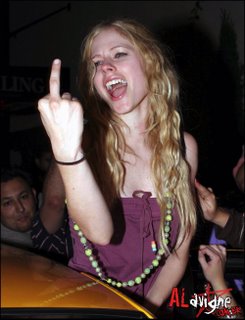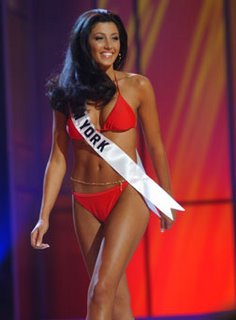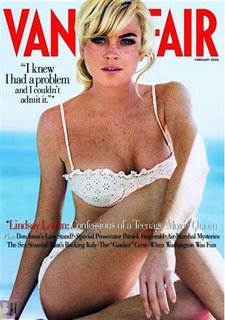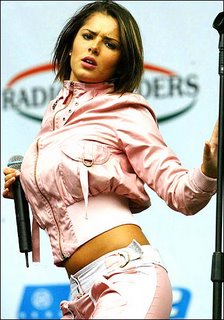Even the date of birth is contentious when it comes to Lou Rawls, who died today. Most sources suggest he was born 70 years ago, although his family insist his death has come at the age of 72.
What is certain, though, is he was born in Chicago, and it was there he was introduced to gospel music by his grandmother. It was the music which would carry him to Los Angeles in 1950s, where he joined a touring act, The Pilgrim Travelers. Two sessions, bracketing a three-year period rising to Sergeant in the 82nd Airborne Regiment, saw him working with Sam Cooke and opening for the Beatles, but it was to be his smaller gigs on the LA R&B circuit which would lead to his big break. A Capitol Records talent scout heard him and, impressed by his four-octave range, signed him to a partnership which would last for nearly a decade, kicking off with Stormy Monday in 1962. In 1971, Rawls jumped ship to MGM. Eventually, Rawls founded his own label, Rawls & Brokaw, on which he released 1998's Seasons 4 U.
1966's Love Is A Hurtin' Thing won his first two Grammy nominations; he would have to find space for three small decorative record players across his work. He's also credited by some for inventing rap - he would deliver some tracks in a semi-singing, semi-talking way, originally designed to make himself noticed over the noise of the waitresses and ice machines in small night clubs. In 1971, Rawls beat Frank Sinatra for the coveted Best Male Singer award in the Dowbeat readers poll, and he would continue to ride the wave of popularity until the musical tide turned towards the dancefloor.
Unwilling to sing lyrics he believed to be meaningless ("A lyric has to mean something to me, something that has happened to me. I try to look for songs people can relate to because I know the man on the corner waiting for the bus has to hear it and say, 'Yeah that's right.'"), Rawls swapped labels again to avoid being bounced into following the herd. His gun-sticking obstinacy paid off, as his new label, Philadelphia International, delivered his biggest hit, You'll Never Find Another Love Like Mine.
Rawls had a habit of turning up as an actor in some frightening spin-offs: he had a part in Baywatch Nights and, at the movies, Blues Brothers 2000. As a voiceover artist, he could at least hide his face as he took cash for Captain Planet and Garfield.
More fittingly as a legacy, he can be remembered as a tireless charity and civil rights campaigner - his Lou Rawls Parade of Stars Telethon series have raised more than $200million for the United Negro College Fund.
Rawls had previously died: in 1958, he was pronounced dead following a car crash. He remained in a coma for nearly a week, and recovery was slow: his memory took two months to return; full health took another ten.
His health has been failing for a while now - he was diagnosed with lung cancer in December 2004, and brain cancer in May 2005. Optimistically, he posted a message on his website pledging his intent to survive: "I want to thank everyone for your prayers and expressions of love. Your concern touches me...but don't count me out. There's been many people who have been diagnosed with this kind of thing, and they're still jumpin' and pumpin.' I'm thinking good thoughts." Sadly, that wasn't enough, and he died earlier today.
 Fly carefully, brave bird... we can't afford to pay for any broken wings or twisted beaks...
Fly carefully, brave bird... we can't afford to pay for any broken wings or twisted beaks...



 Oddly enough, despite insisting that her look was so hertfelt and genuine,
Oddly enough, despite insisting that her look was so hertfelt and genuine, As his career becomes heavier on the "former" than the "lead singer of Creed" bit, Scott Stapp has managed to do something to shore up interest in him by getting engaged to a former Miss America type beauty queen, Jaclyn Nesheiwat. Apparently the pair met at a charity benefit (of course - what else do beauty queens do but travel from charity event to charity event) last year and intend to get married next month while they can still interest the celeb maagzines in it.
As his career becomes heavier on the "former" than the "lead singer of Creed" bit, Scott Stapp has managed to do something to shore up interest in him by getting engaged to a former Miss America type beauty queen, Jaclyn Nesheiwat. Apparently the pair met at a charity benefit (of course - what else do beauty queens do but travel from charity event to charity event) last year and intend to get married next month while they can still interest the celeb maagzines in it. Just as inevitable as one day Charles Kennedy was going to have to say "So, I like a drink...", Dave Lee Roth has warned that one day
Just as inevitable as one day Charles Kennedy was going to have to say "So, I like a drink...", Dave Lee Roth has warned that one day  Daisy Martey, who used to be the singer with Morcheeba until she was sacked for being ill, is suing her former bandmates claiming harrassment, breach of contract and defamation. Martey replaced original Morcheeba vocalist Skye, but it doesn't sound
Daisy Martey, who used to be the singer with Morcheeba until she was sacked for being ill, is suing her former bandmates claiming harrassment, breach of contract and defamation. Martey replaced original Morcheeba vocalist Skye, but it doesn't sound  For a man who's quite happy to chop himself to shreds in order to pad out a BBC Three documentary, he's quite shy about his knob. The
For a man who's quite happy to chop himself to shreds in order to pad out a BBC Three documentary, he's quite shy about his knob. The  Although we're sure her recent hospitalisation was down to asthma and not anything else,
Although we're sure her recent hospitalisation was down to asthma and not anything else,  The new Pink album is - hopefully - shaping up to be a massive improvement on the last one, as she's dumped the idea that people want her to do everywoman nonesense and got personal again. Amongst what she's promising is a
The new Pink album is - hopefully - shaping up to be a massive improvement on the last one, as she's dumped the idea that people want her to do everywoman nonesense and got personal again. Amongst what she's promising is a  Someone saw Cameron Diaz emerging from a clinic looking happy, and perhaps a little bit better built and rather than thinking "thank god, she seems to have started eating properly", they've decided that she's
Someone saw Cameron Diaz emerging from a clinic looking happy, and perhaps a little bit better built and rather than thinking "thank god, she seems to have started eating properly", they've decided that she's  The work she did before she went all grown-up and returned to being called Alison Clarkson. Wonder if she's still got the boots...
The work she did before she went all grown-up and returned to being called Alison Clarkson. Wonder if she's still got the boots... Readers of the Sun were asked - presumably during a drunken night out - "if you could persuade anyone famous to appear on Page 3, who would it be?"
Readers of the Sun were asked - presumably during a drunken night out - "if you could persuade anyone famous to appear on Page 3, who would it be?" All that bouncing up and down and hours applying mascara have taken it out of Green Day, who plan to spend most of 2006 on holiday, riding their BMXes and comparing downy growths,
All that bouncing up and down and hours applying mascara have taken it out of Green Day, who plan to spend most of 2006 on holiday, riding their BMXes and comparing downy growths,  Having got sick of only ever appearing in pictures stood behind a man with a stupid moustache, Meg White is embarking on a career as a model. She's going to be the new face for Marc Jacob's range, following in the catwalky footsteps of Stephen Malkmus and Thurston Moore. Presumably he's aware he'll need to make the shirts a little more roomy this time.
Having got sick of only ever appearing in pictures stood behind a man with a stupid moustache, Meg White is embarking on a career as a model. She's going to be the new face for Marc Jacob's range, following in the catwalky footsteps of Stephen Malkmus and Thurston Moore. Presumably he's aware he'll need to make the shirts a little more roomy this time. Actually, it'd be a sad collection without Rich Girl in it somewhere. No, seriously. Don't be so quick to judge a band by their mullets.
Actually, it'd be a sad collection without Rich Girl in it somewhere. No, seriously. Don't be so quick to judge a band by their mullets.



